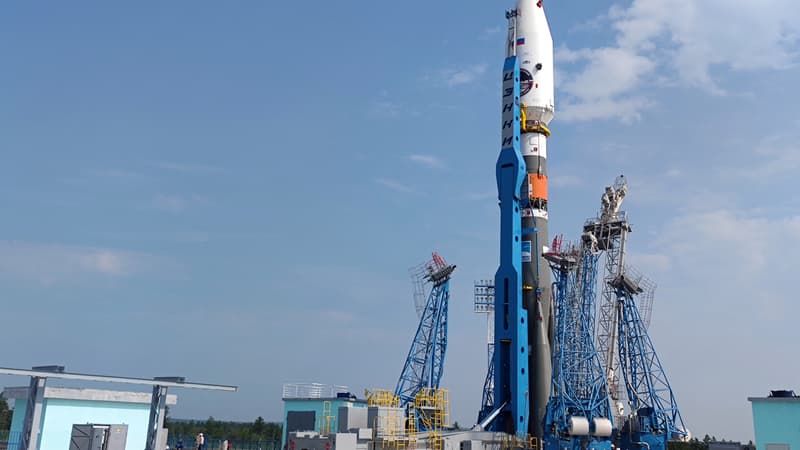Russia is launching its first mission to the moon in nearly fifty years on Thursday night, hoping to give new impetus to its space sector, which has been struggling for years and isolated due to the conflict in Ukraine. The launch of the Luna-25 probe is Moscow’s first lunar mission since 1976, when the USSR pioneered the conquest of space. A star that has faded due to financing problems and corruption scandals.
The nearly 800-kilogram probe will be launched by a Soyuz rocket on Friday from the Vostochny Cosmodrome in Russia’s Far East at 2:10:57 a.m. Moscow time. It should reach lunar orbit five days later. According to the Russian space agency Roscosmos, the device will have to spend three to seven days in this orbit to choose the right place before landing in the area of the lunar south pole.
According to a Roscosmos source contacted by AFP, the agency plans a landing of the probe around August 21.
“For the first time in history, the moon landing will take place at the lunar south pole. Until now, everyone landed in the equatorial zone,” said a senior Roscosmos official, Alexandre Blokhine, in a recent interview with the official Rossiïskaïa. Newspaper La Gazeta. The machine, which must remain on the Moon for a year, will have the mission of “taking (samples) and analyzing the soil,” as well as “carrying out long-term scientific research,” the space agency also said. .
“Can you land?”
This launch is the first mission of the new Russian lunar program, which begins when Roscosmos is deprived of its associations with the West. As with its diplomatic orientation, Moscow seeks to develop space cooperation with China. The ambitions are high: according to Russian space expert Vitali Yegorov, this is the first time that post-Soviet Russia has attempted to place a device on a celestial body.
President Vladimir Putin has vowed to continue Russia’s space program despite sanctions, citing the example of the USSR sending the first man into space in 1961 amid rising East-West tensions. “We are guided by the ambition of our ancestors to go ahead, despite difficulties and outside attempts to prevent us from doing so,” Vladimir Putin said, speaking at the Vostochny Cosmodrome last year.
Still, the Luna-25 mission is “risky”, by Roscosmos chief Yuri Borissov’s own admission. “The probability of success of such missions is estimated at around 70%,” he told Vladimir Putin during a meeting in June. The first stage of the Soyuz launcher is due to land in the vicinity of the village of Chakhtinski, in the Khabarovsk region in the Far East. The authorities announced the evacuation of its inhabitants since Friday morning.
The last Soviet mission to the Moon in 1976, Luna-24, returned soil samples to Earth.
Yuri gagarin
The space sector is a source of great pride in Russia, the Soviets launched the first satellite, Sputnik, they sent the first animal, a dog named Laika, into Earth orbit, the first man, Yuri Gagarin, then the first woman, Valentina Tereshkova. . . However, the USSR had been defeated by the United States for the first man on the Moon, with the flight of Neil Armstrong in July 1969.
Russia’s space program, still heavily reliant on Soviet-designed technologies, struggles to innovate and suffers from chronic underfunding, with Moscow prioritizing military spending. It has also been marked by corruption scandals and some failed launches, while the United States, China and also private initiatives, such as those of SpaceX, billionaire Elon Musk, are increasingly questioning it.
Source: BFM TV


